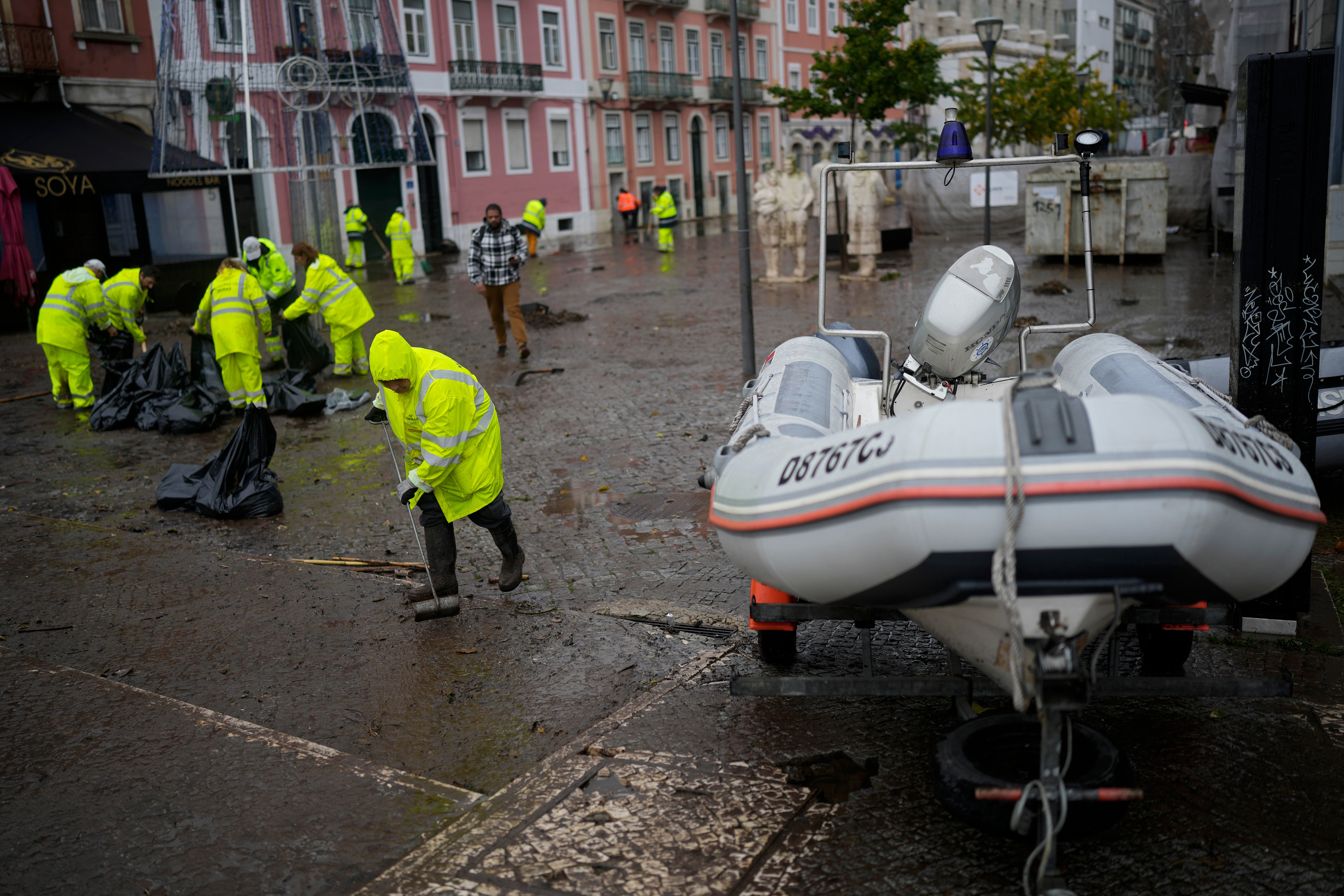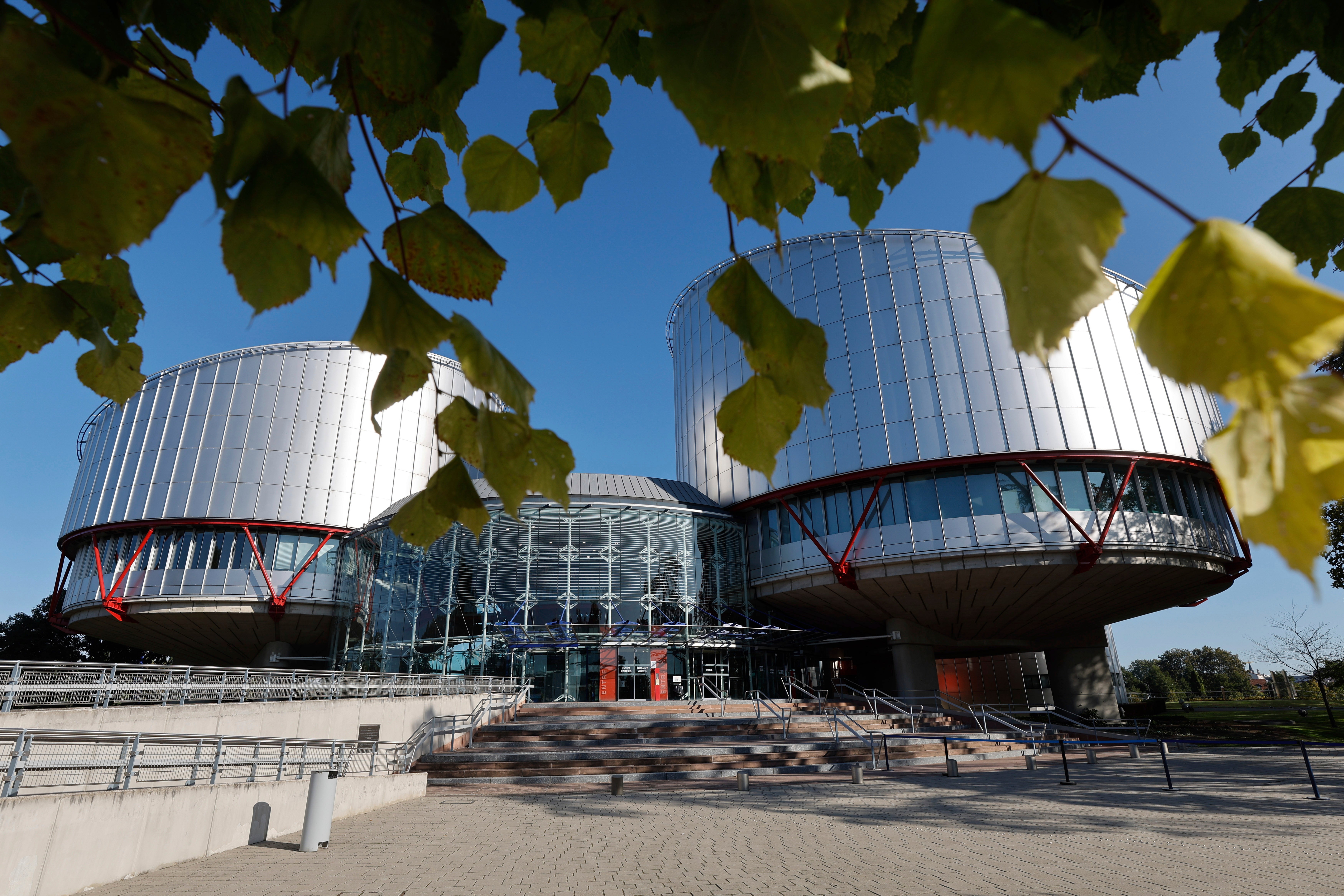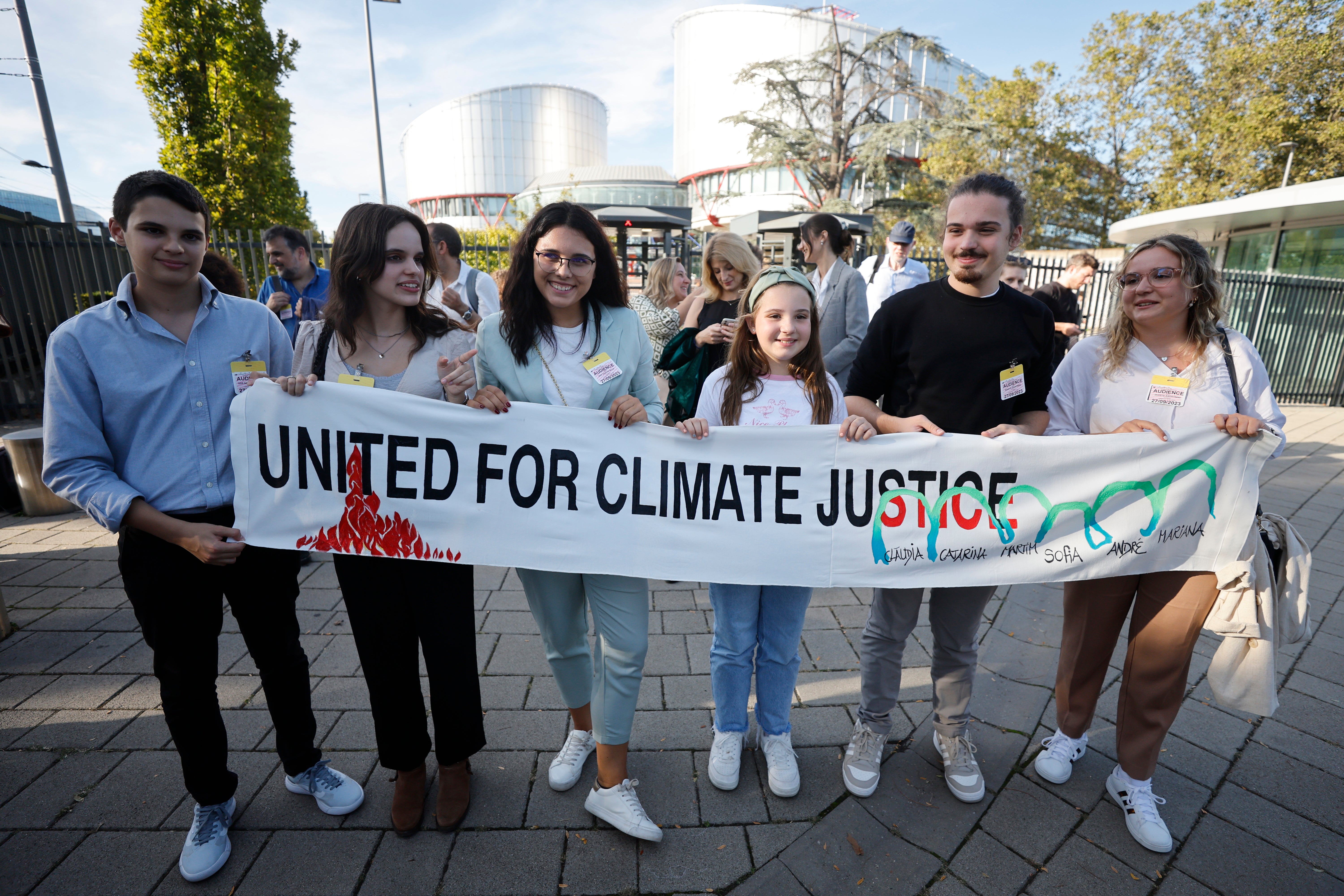Landmark ruling to decide if climate change action is a human right
It will be the first time an international court has ruled on climate change

The European Court of Human Rights will rule on Tuesday on a group of landmark climate change cases aimed at forcing countries to meet international obligations to reduce greenhouse gas emissions.
The court will hand down decisions in a trio of cases brought by a French mayor, six Portuguese youngsters and more than 2,000 members of Senior Women for Climate Protection, who say their governments are not doing enough to combat climate change.
Lawyers for all three are hoping the Strasbourg court will find that national governments have a legal duty to make sure global warming is held to 1.5 degrees Celsius (2.7 degrees Fahrenheit) above pre-industrial levels, in line with the goals of the Paris climate agreement.
Although activists have had successes with lawsuits in domestic proceedings, this will be the first time an international court has ruled on climate change.
A decision against any of the countries involved could force them to reduce net emissions to zero by 2030. The EU, which doesn't include Switzerland, currently has a target to be climate-neutral by 2050.
The decisions have “the potential to be a watershed moment in the global fight for a livable future. A victory for any of the three cases would be one of the most significant developments on climate change since the signing of the Paris Agreement” said Gerry Liston, a lawyer with the Global Legal Action Network, which is supporting the Portuguese students.
“The extreme heat waves, the rainfalls, followed by heat waves, it is just choking us with greenhouse effects. And what worries me is the frequency in which they started happening more and more. That’s what really scared me. And, I thought to myself, well, what can I do?” 16-year-old André dos Santos Oliveira told reporters ahead of the decision.

Together with five more young people, Santos Oliveira took Portugal and 32 other nations to court, arguing the failure to stop emissions violated their fundamental rights.
At the other end of the age spectrum, a group of Swiss retirees are also demanding their government do more. Senior Women for Climate Protection, whose average age is 74, say older women’s rights are especially infringed on because they are most affected by the extreme heat that will become more frequent due to global warming.
Earth shattered global annual heat records in 2023, flirted with the world’s agreed-upon warming threshold, and showed more signs of a feverish planet, Copernicus, a European climate agency, said in January.
In all three cases, lawyers argued that the political and civil protections guaranteed by the European Convention on Human Rights are meaningless if the planet is uninhabitable.

The countries facing the legal challenges hope the cases will be dismissed. They say the blame for climate change cannot rest with any individual country.
Switzerland is not alone in being affected by global warming, said Alain Chablais, representative of the country at last year's hearings. “This problem cannot be solved by Switzerland alone.”
Acknowledging the urgency of the climate crisis, the court fast-tracked all three cases, including a rare move allowing the Portuguese case to bypass domestic legal proceedings.
Judgments from the European Court of Human Rights aren’t legally binding against all 46 of its member states, but they set a legal precedent against which future lawsuits would be judged.
Bookmark popover
Removed from bookmarks